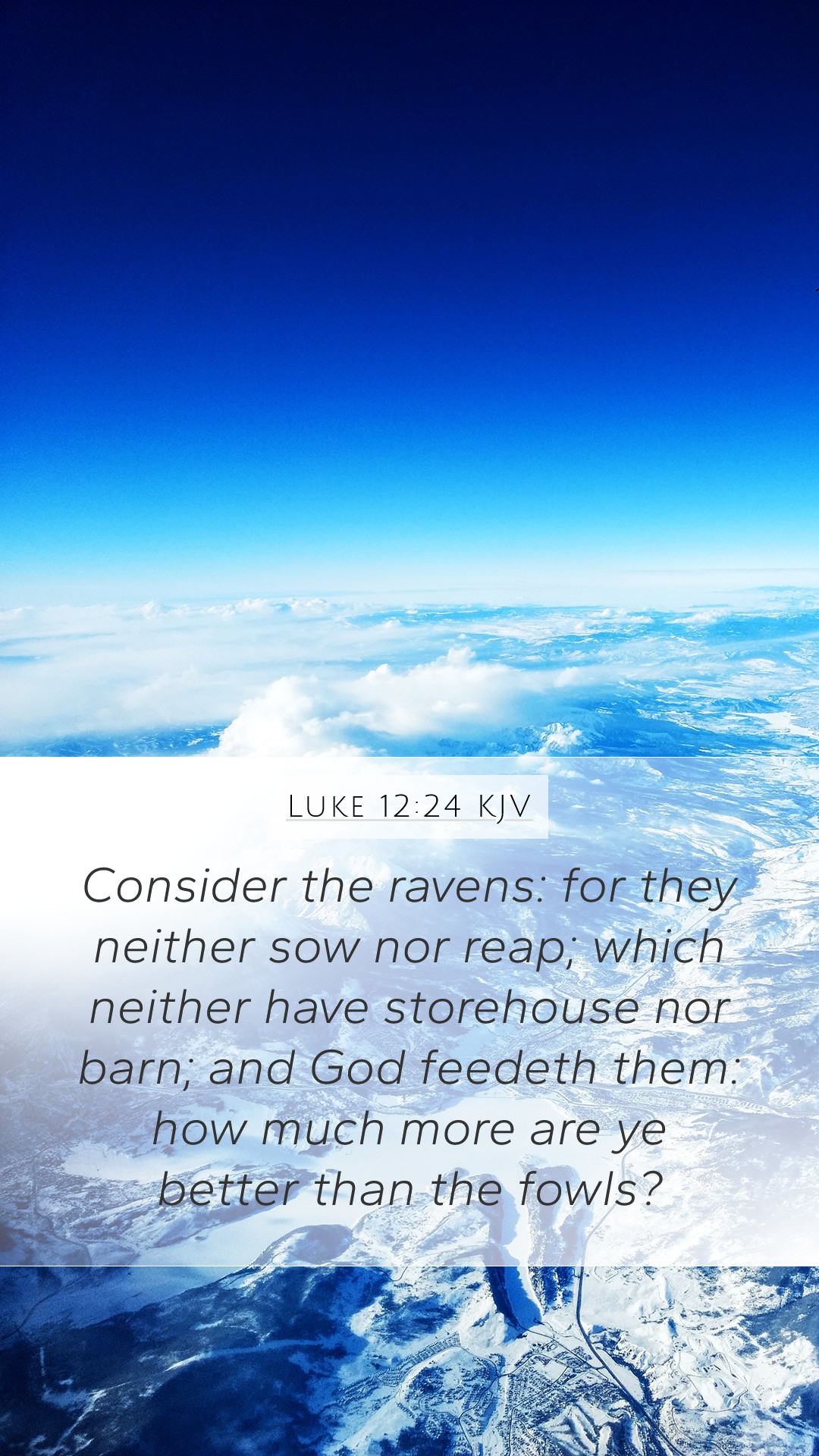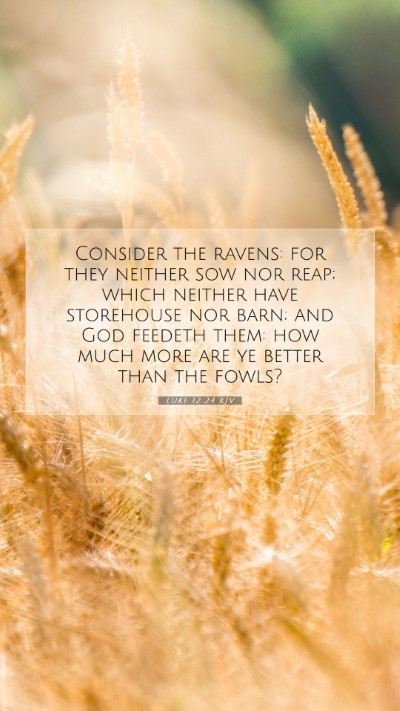Understanding Luke 12:24
Luke 12:24: “Consider the ravens: for they neither sow nor reap; which neither have storehouse nor barn; and God feedeth them: how much more are ye better than the fowls?”
This verse brings forth an essential teaching of Jesus regarding divine providence and the care God extends to His creation. In this passage, the comparison made between ravens and humans emphasizes God's commitment to providing for His creatures, assuring believers of their greater value in His eyes.
Verse Meaning and Interpretation
1. Divine Provision
Commentaries suggest that Jesus uses the example of ravens, birds known for their lack of worry and effort in agriculture, to illustrate a profound truth about God's sustenance. Matthew Henry observes that these birds do not engage in the labor of planting or harvesting, yet God ensures they are fed. This highlights the dependence of all creation on God’s providence.
2. Value of Humanity
Albert Barnes points out that the phrase “how much more are ye better than the fowls” reinforces the dignity and worth of human life. It serves as a reminder to believers that they are created in the image of God, receiving greater care and attention from Him than the birds. This insight encourages a greater trust in God’s provision and care.
3. The Urgency of Trust
Adam Clarke emphasizes the importance of casting away anxieties over material needs by reflecting on God’s past provisions. He notes that worry and fear are contrary to trusting in the divine nature of God, who knows the needs of His creation. This encourages Christians to abandon doubts and live in faith.
Biblical Exegesis
This verse is embedded within a broader teaching on anxiety and God's provision in Luke 12. Jesus encourages His followers not to be anxious about their material needs, illuminating how God cares for even the smallest creatures like ravens.
Key Themes
- Trust in God's Provision: The assurance that God cares for all creation fosters faith among believers.
- Comparison to Creation: Jesus uses the care for birds as a metaphorical device to teach a deeper spiritual truth about care and value.
- Spiritual and Material Harmony: True life is not merely about physical sustenance but involves confidence in a loving God.
Application of Luke 12:24
In practical application, this verse compels believers to reflect on their concerns and to seek a deeper trust in God. Understanding the significance of Luke 12:24 can lead one to evaluate personal anxieties about everyday needs and to recognize the need to rely more fully on God’s unfailing provision.
For Bible Study Groups
This verse can serve as an engaging topic for Bible study groups. It invites discussions on how to alleviate worry and stress through reliance on God. Facilitators might encourage members to share experiences of divine provision in their own lives and how faith can transform anxiety into peace.
Further Study Tools
- Historical Context: Explore how Jewish culture viewed care for animals and how this reflects God’s nature.
- Cross-references: Relate this verse to Matthew 6:26, which similarly addresses worries over needs.
- Practical Exercises: Encourage members to list their concerns and prayerfully surrender them to God.
Cross References
- Matthew 6:26: “Behold the fowls of the air: for they sow not, neither do they reap, nor gather into barns; yet your heavenly Father feedeth them.”
- Psalms 104:27-28: “These wait all upon thee; that thou mayest give them their meat in due season.”
- Philippians 4:19: “But my God shall supply all your need according to his riches in glory by Christ Jesus.”
Conclusion
In conclusion, Luke 12:24 serves as a poignant reminder of God’s unwavering provision for all His creatures, particularly humanity. Those studying this scripture can derive deeper insights into God’s nature, affirming that the same providential care extended to the ravens is abundantly available to believers, thus alleviating the burdens of anxiety and worry through faith in Him.


